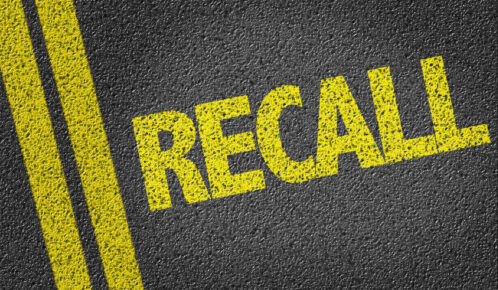With medical errors contributing to thousands of deaths in the U.S. annually, statistics suggest doctors kill more than guns. Gun violence caused about 49,000 fatalities in the U.S. in 2021. Preventable medical mistakes account for around six times as many fatalities. Johns Hopkins researchers found that preventable medical mistakes cause up to 250,000 fatalities annually. The top reasons people die in hospitals include surgical errors, diagnostic and treatment errors, faulty medical devices, and hospital-acquired infections.
Table of Contents

You might have grounds for a medical malpractice claim if you got injured because of a healthcare professional’s negligence. A skilled medical malpractice attorney can thoroughly investigate your claim, compile adequate evidence, and hold the liable medical provider financially accountable for the losses or expenses arising from your injuries.
Fatal Medical Errors Are the Third-Leading Cause of Death in America
An analysis of 8-year medical death rate data by Johns Hopkins researchers found over 250,000 medical malpractice deaths occur in America annually. The researchers concluded that medical errors are the third-leading threat to human life in the country.
The researchers claimed that the CDC does not categorize deaths caused by medical errors on separate documents. They also mentioned that more changes are needed when compiling death certificates of people who died due to failed medical care.
What Are Medical Errors?
Medical errors are preventable injuries that often occur due to negligence from a physician or caregiver. Negligence, in this context, occurs when healthcare providers do not meet reasonable professional obligations. The law requires them to exercise a duty of care to patients. Failing to exercise this duty can cause fatal injuries to patients.
Negligence in personal injury law refers to someone’s failure to exercise the level of caution expected of a law-abiding citizen. For healthcare professionals, exercising caution means providing care that matches their training and experience.
Medical malpractice claims consider omissions as a form of medical negligence. A medical provider may be liable for omissions if he or she failed to conduct a crucial procedure or ignored symptoms altogether, contrary to what his or her professional license mandates.
Medical Error Examples
Medical errors can take many forms, depending on the expected duties of the healthcare professional and the equipment involved. A common example is misdiagnosis, which entails diagnosing a patient with the wrong condition or disease.
If a patient gets treatment for the wrong illness and sustains an injury, the physician who made the diagnosis is liable for the injuries. If a physician fails to diagnose a condition or order relevant medical tests, the physician is responsible for injuries or losses the victim incurs. The same applies if the healthcare provider fails to monitor a patient when he or she is in a critical state at the hospital. Other examples of medical errors include the following:
- Anesthesia mistakes
- Failure to seek informed consent for a risky medical procedure
- Improper medical prescriptions
- Botched surgeries or leaving the operating tools inside of you
- Improper use of medical equipment
When Does a Medical Error Become Medical Malpractice?
If the medical error caused direct harm to you, you may have valid grounds for filing a medical malpractice claim. In your claim, your attorney will need to prove that the physician owed you a duty of care and failed to meet the required standards. Your medical malpractice attorney will also need to demonstrate in the claim that the medical error caused you harm, and the injury has resulted in losses that can be recovered through damages. Negligence torts are the most common medical malpractice lawsuits that hold a healthcare professional or hospital liable for your injuries or losses.
Who Is Liable for Medical Negligence?
Any trained medical professional who offers low-quality care or knowingly uses defective devices in his or her treatments can be held liable for medical negligence. Doctors, hospitals, nurses, chiropractors, dentists, and lab technicians are potentially liable parties in medical malpractice claims or lawsuits. In some cases, multiple parties may be responsible for the error, and should be included in the lawsuit to recover all possible compensation.
Gun Violence Facts and Statistics
The risk of gun violence continues to rise across the country. It is becoming increasingly common due to the partisan politics, individual rights, interest groups, and gun culture at the center of gun control debates.
The U.S. has the highest number of civilian-held firearms. Despite accounting for only 5% of the global population, the United States civilian gun owners make up for nearly 46% of the world’s civilian gun ownership.
Illinois has one of the highest gun violence rates in the country, with one life lost every six hours and 1,363 lives lost every year. It ranks at number nine in states with the highest gun homicide rates. Of all homicides committed in Illinois, 80% are gun-related. Gun violence caused about 49,000 deaths in the U.S. in 2021.
Mass shootings are also rising at alarming rates in the U.S., resulting in increased fatalities. A mass shooting is a form of gun violence that leads to three to four casualties, the gunman or suspect excluded.
Recent surveys suggest that the country recorded 611 and 692 mass shootings in 2020 and 2021, respectively. At the end of May 2022, 34 states, Washington DC included, had 213 mass shooting incidents. These incidents resulted in 912 injured victims and 242 deaths.
Why Are People Dying in Hospitals?
With such a high number of hospital deaths occurring each year, it is crucial to look at why people die in hospitals.
Here are some of the reasons that patients may die in hospitals:
Human Errors
Human errors imply that a healthcare provider failed to meet the required medical care standard or adhere to the governing protocols or policies. Poor sample labeling and incorrect patient information documentation are great examples of human mistakes.
Communication problems, which can also cause human errors, may arise when a patient shares information with a medical provider. Miscommunication may also happen between different healthcare providers who are in charge of your care.
A lack of information can cause serious harm to the patient during his or her treatment. If the correct medical information is not shared from one hospital department to the other, the patient may get the wrong treatment or prescription. If test results are not communicated correctly, then that can put the patient’s life at risk for not receiving the correct treatment.
Sleep deprivation can also increase the possibility of medical errors. Lack of sleep may cause human errors, such as failure to treat and early discharges. A medical practitioner may endanger a patient’s life due to an early hospital discharge or failure to refer the patient to another professional for additional treatment.
Hospital-Acquired Infections and Birth Injuries
While leaving the hospital in good health is the goal, you may develop an infection at the facility. Hospitals, nursing homes, and medical centers are healthcare environments that can expose you to illnesses after a prolonged stay.
The major causes of hospital-acquired infections include poor sterilization procedures, substandard protocols, taking shortcuts, and staff shortages. Whatever the cause, these infections are often life-threatening.
Birth injuries arise from medical mistakes during pregnancy, birth, or labor. In particular, a lack of quality prenatal care might cause serious birth injuries to the newborn. Also, if pregnant women receive the wrong medication, or if unsterilized medical devices get used during birth, the infant may suffer serious injuries.
Diagnostic Errors and Treatment Errors
A healthcare provider may make a diagnostic error by failing to give a timely and correct diagnosis. An incorrect diagnosis can put a patient at risk of injury and lead to wrongful death. The healthcare practitioner may fail to listen to or work with you closely. The practitioner may also fail to review the test records and results.
Physicians can make errors when giving medical prescriptions. As such, a patient may buy the wrong medication, which will not help treat his or her condition. Incorrect medical prescriptions can also lead to fatalities.
Surgical errors may occur when the doctor leaves operating tools inside the body. The causes of fatal surgical blunders here include surgery done on the wrong patient due to the doctor’s failure to confirm the patient’s identity. Other surgical errors occur when the surgeon performs an incorrect procedure or operates on the wrong body part.
Faulty Medical Devices
Defects in medical devices also cause injuries and wrongful deaths in hospitals. You can hold the manufacturer financially accountable if you sustained severe injuries because of a defective medical device. You can also name medical practitioners as defendants in the claim if they failed to handle the device correctly or were aware of its defects and used the device for treatment anyway.



